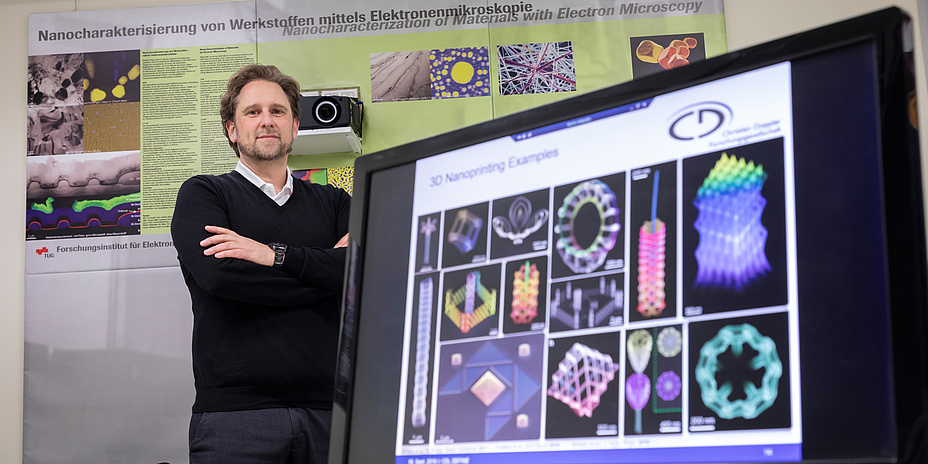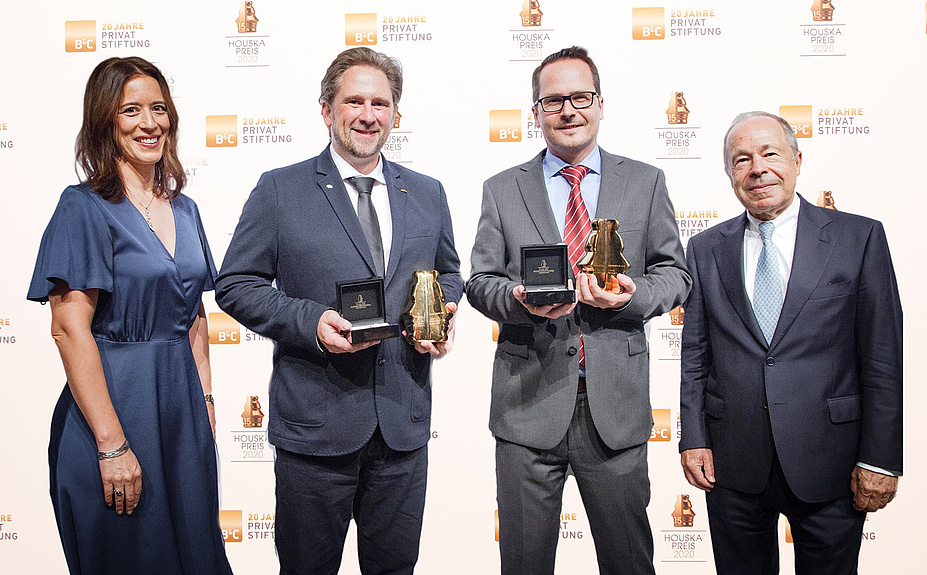Houska Prize 2020 goes to TU Graz researcher Harald Plank

Austria's largest private research prize – awarded annually by the B&C private foundation – goes to TU Graz in 2020. The physicist Harald Plank and his team can look forward to the coveted golden trophy and the prize money of 150,000 euros for the first-placed team. The prize was awarded yesterday, 24th September, in Vienna. A total of 500,000 euros was awarded to application-oriented research projects.
“This is a great success for the researchers and at the same time a wonderful acknowledgement of the efforts of TU Graz to specifically promote top performance. I sincerely congratulate Harald Plank and his entire team for this extraordinary award," says a delighted Harald Kainz, Rector of Graz University of Technology.

The winners of the Houska Prize Harald Plank (l.) and Christian Harwanegg (MacroArray Diagnostics GmbH), flanked by Mariella Schurz and Erich Hampel (both B&C). © B&C/Alexandra Thomson
Complex 3D structures on the nano scale
The researchers, led by Harald Plank, developed a novel 3D nanoprinting technology, known as FEBID technology (Focused Electron Beam Induced Deposition), for the production of complex, three-dimensional objects on the nanoscale. This new method is intended to open up new areas of application for the industry that were previously not possible with conventional 3D printing processes. This printing process has already made it possible to produce electrically conductive 3D high-resolution nanoprobes that are already being used by industrial partners in atomic force microscopes.
Future nanoprobes will allow simultaneous analysis of electrical, magnetic, chemical and optical surface properties, with performance significantly higher than that of alternative, commercially available products.
The successful research work was significantly supported by the Graz Centre for Electron Microscopy and by Austrian Cooperative Research in Vienna.
Harald Plank heads the Christian Doppler Laboratory for the Direct Fabrication of 3D Nanoprobes at TU Graz.
Kontakt
Harald PLANK
Assoc.Prof. Dipl.-Ing. Dr.techn.
TU Graz | Institute of Electron Microscopy and Nanoanalysis
Phone: +43 316 873 8821
harald.plank@felmi-zfe.at



